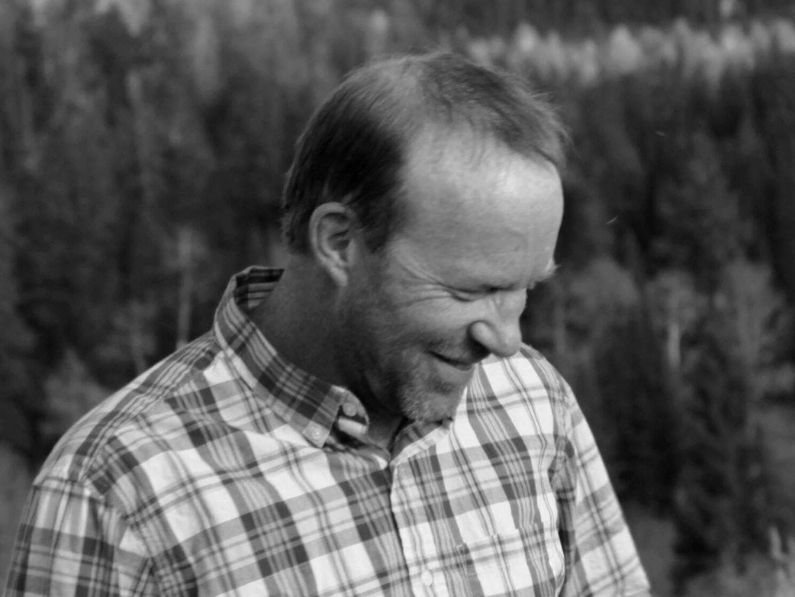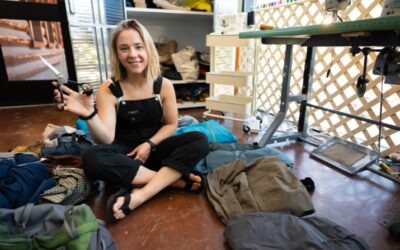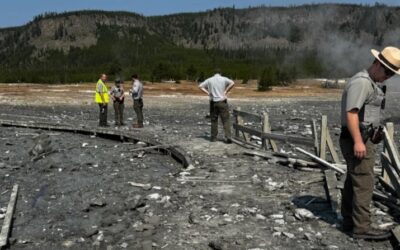Pete Muldoon officially left public office on Monday, with the swearing-in of Hailey Morton Levinson. In the four years Muldoon served as mayor, he oversaw housing rezoning and the creation of tenant protections. Plus, he passed a plastic bag ban and other climate resolutions and helped lead the local response to the COVID-19 pandemic. He reflected on an eventful four years, to say the least, as the highest-ranking public official in the Town of Jackson, starting with the moment he’ll remember most:
Muldoon: Well, you know, probably the moment that sticks out the most for me was the night we passed the nondiscrimination ordinance with LBGTQ protections. That was something that I ran on. I promised that I would do that. I’m proud that we got it done. And the meetings were very–I don’t know–they were very tense. There was a lot of passion in the room. That really sticks out to me as something where you could see how important this was to folks, and how much they needed that, and how much it meant to them. And being able to get that done–that’s a highlight.
Walkey: How do you think you were able to get so much done? What do you think it was about you that led to some of the accomplishments that you were just listing?
Muldoon: A couple of things, probably. These things are important to me, you know, I don’t come from a background of privilege. I struggle along with a lot of other folks in this town, and have for a long time. And they are actually important to me. They’re not just boxes to check. And I also think, looking back on it, I never thought or governed in order to get reelected. I figured I had four years and I should make the most of it. And I just wanted to make sure that I didn’t leave anything on the table, and I don’t think I left anything on the table.
Walkey: If someone maybe weren’t from here, or if you were just telling people about Jackson, how would you say that it’s changed?
Muldoon: Our wealth inequality has gotten higher and that’s been going on since I moved here over 20 years ago now. And I think that’s a problem. I think wealth disparity is really bad for communities. It affects our ability to understand each other. Whenever the council proposes policies that are designed to help improve the community, we get pushback every time from people who are asking, “What’s in it for me?” It’s an American culture of, you know, individualism. And we’re all supposed to be out to get what’s ours and look out for ourselves first. And, you know, Jackson wasn’t like that 20 years ago and I think–with the wealth disparity–that’s going to get worse. And it’s going to be hard for the next council. But having said all of that, I’m 100 percent confident that if anyone can do it Hailey can do it. I think she’s going to be great at the job.
Walkey: Speaking on the Town Council, you obviously ran for a seat unsuccessfully. And if you could have changed anything about your campaign for Town Council, what might you have changed?
Muldoon: No, I wouldn’t change anything, I mean, I’m pretty fully aware of the reasons that I lost. You know, as I said earlier, I never made decisions based on trying to get reelected. And, you know, the outcome of that is you’re going to antagonize people. And in my case, it was law enforcement, and there were people who had a lot at stake in development. And, you know, I’m disappointed in how all that came out. I think it’s unfortunate that our politics are in a place where right-wing billionaires and the politicians that they support would use false allegations to win an election. But that’s where we’re at. I do think we need to reform law enforcement, for example. And there’s a political price to pay for angering people with a lot of power. And, you know, I knew it. I knew that going into it and if you put me back in that position, I would do the same thing. So, I sleep great at night. And people who treat politics that way will have to live with themselves for it.
Walkey: Regarding the police budget, that was an issue that you were very vocal about. And now that you’re no longer mayor, what do you think is going to happen to that issue going forward, and how would you hope to see it talked about?
Muldoon: I mean, I would hope that we would actually look at it as we should look at all of our budget items and look at law enforcement and say, look, are we putting our resources in the right place? You know, we’ve got vulnerable, struggling people in this community, is the money–the vast amounts of money we put into policing here–is that actually improving life on the ground for people? And that’s what I was trying to figure out and those were the questions that I was asking. And I think for me, it was telling that the pushback was so quick. That tells me we need to continue to look at that. Our former Chief of Police–We had a meeting, and one of the things we were presumably going to talk about was the budget. Presumably, the police budget would be part of that. And the Chief of Police apparently went out and gathered protesters to come down and protest the Town Council for reviewing the budget. That’s our job, you know, and I think that’s very problematic. I’m afraid that future elected officials will see what happened over the last six months and decide that’s not something they want to deal with, but I hope that that’s not the case.
Walkey: Are there any other reflections? Anything else that you think I’m missing that you’d like to say?
Muldoon: There are so many people I want to thank, and I’m not going to thank them by name, but the people who had come to Town Hall to comment in support or against things that were important to other people. That were important to people who are struggling in our community or vulnerable people. I was really moved. I don’t want to sound negative about this. In general, there’s a lot of people like that in our community who are really–they’re inspirational. You sit there and, you know, it’s hard not to tear up during some of those meetings. There are a lot of folks in this community who really care. And I think that’s something I’ll take with me.





